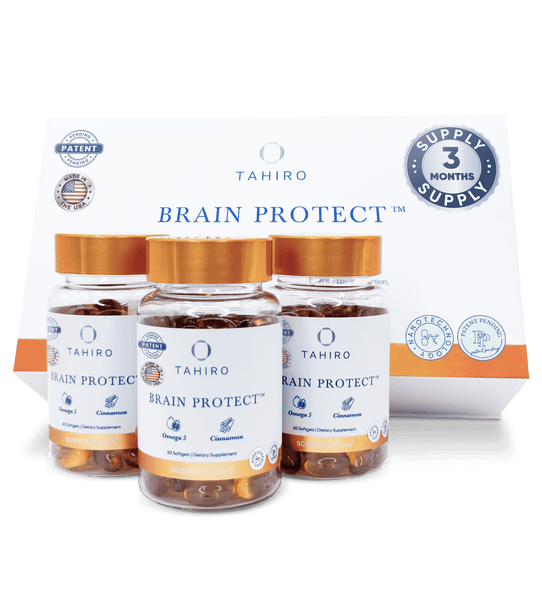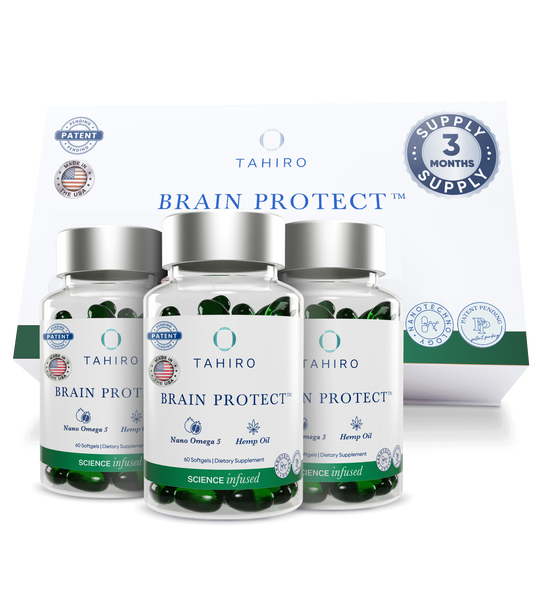Are you struggling with memory loss and looking for a natural solution to help improve your brain function? You might want to consider trying cinnamon. This delicious spice has been used for centuries in traditional medicine as well as cuisine, and recent studies suggest that it may have cognitive benefits.
In this article, we'll explore the scientific evidence behind cinnamon's potential to boost memory, so you can discover whether this spice is the right choice for you. Get ready to spice up your brainpower and discover the benefits of cinnamon for your nervous system.
Discovering the Memory-Boosting Components of Cinnamon
Cinnamon has been found to have several components that can potentially improve memory function [1]. Some of these include:
-
Cinnamaldehyde: a compound that gives cinnamon its distinct flavor and aroma, which has been shown to improve learning ability and memory retention in animal studies.
-
Epicatechin: a flavonoid that has been found to enhance memory and increase blood flow to the brain in human studies.
-
Eugenol: another compound responsible for cinnamon's aroma, which has been shown to have antioxidant and anti-inflammatory properties that could help to protect brain cells from damage.
-
Proanthocyanidins: a class of flavonoids that have been found to improve cognitive function and memory in animal studies.
These components work together to potentially provide cognitive benefits when cinnamon is consumed as part of a balanced diet.
The Potential of Cinnamon as a Treatment for Memory-Related Diseases
Cinnamon has been found to have potential therapeutic effects on several memory diseases, including:
-
Alzheimer's disease: Cinnamon has been shown to have anti-amyloidogenic effects, meaning it may help to prevent the formation of amyloid plaques that are characteristic of Alzheimer's disease [2].
-
Vascular dementia: Cinnamon has been found to have vasodilatory effects, meaning it can help increase blood flow to the brain. This could potentially help to improve cognitive function in individuals with vascular dementia [3].
-
Lewy body dementia: Cinnamon has been shown to have neuroprotective effects that could potentially help slow the progression of Lewy body dementia [4].
-
Fronto-temporal dementia: Cinnamon's anti-inflammatory properties may help reduce the inflammation in the brain that is associated with fronto-temporal dementia [5].
-
Progressive supranuclear palsy: Cinnamon's potential to improve cognitive function may be beneficial for individuals with progressive supranuclear palsy, which can cause problems with memory and thinking [2].
-
Normal pressure hydrocephalus: Cinnamon's ability to improve blood flow to the brain may be helpful for individuals with normal pressure hydrocephalus, which can cause cognitive impairment [4].
-
Creutzfeldt-Jakob disease: Although research on cinnamon's effects on Creutzfeldt-Jakob disease is limited, some studies have suggested that it may have neuroprotective effects that could be beneficial for individuals with this condition [4].
Can you Use Cinnamon for Preventing Age-Related Memory issues?
Cinnamon may also have potential benefits for preventing age-related memory issues. Studies have shown that cinnamon can improve cognitive function and memory in healthy adults, particularly when performing tasks related to attention and working memory [6]. Cinnamon has also been found to have antioxidant and anti-inflammatory properties, which may help protect the brain from age-related damage [7]. Additionally, cinnamon may help regulate blood sugar levels and has been shown to improve insulin sensitivity in the brain [8], which could be important for preventing cognitive decline associated with type 2 diabetes.
Cinnamon Consumption in Human and Animal Studies: A Promising Approach for Memory Loss Recovery and Prevention
Over the years, there has been increasing interest in the potential of cinnamon as a natural remedy for memory loss. Several human and animal studies have been conducted to explore the effects of cinnamon consumption on memory recovery and prevention. Among these studies, one involving elderly individuals with age-related memory issues found that cinnamon supplementation significantly improved cognitive function compared to a placebo [9]. Another study conducted on rats found that cinnamon extract enhanced memory performance and reduced oxidative stress in the brain [10]. In a third study, cinnamon supplementation was shown to improve spatial learning and memory in mice [11]. These findings suggest that cinnamon may have promising potential as a natural intervention for memory-related issues in both humans and animals.
Using Cinnamon for Tau Tangles, Amyloid Plaques & Dementia
Cinnamon has been found to have potential therapeutic effects on dementia by targeting abnormal protein structures that form in the brains of people with Alzheimer’s disease.. Tau proteins form tangled clumps in the brains of individuals with dementia, while beta-amyloid forms larger structures known as plaques. These abnormal protein structures are believed to contribute to cognitive decline. Several studies have suggested that cinnamon may help to prevent or slow the formation of both tangles and plaques [12]. Additionally, cinnamon's anti-inflammatory and antioxidant properties may also contribute to its potential benefits for dementia, by protecting brain cells from damage. While further research is needed to fully understand cinnamon's effects on tau tangles, amyloid plaques, and dementia, these initial findings are promising.
What are The best Ways To Maximize Cinnamon Effects
If you're looking to get the most out of your cinnamon consumption, there are a few things you can do to maximize its effects. First and foremost, don't forget to move your body! Engaging in physical exercise has been shown to improve cognitive function, which can potentially enhance the benefits of cinnamon. And besides physical exercise, mental exercise is also crucial Reading or engaging in other mentally stimulating activities can also improve memory and cognitive function. Plus, if you want to take it up a notch, try pairing your cinnamon with other brain-boosting foods like berries or nuts.
Precautions on Consumption & Daily Intake Limit of Cinnamon
While cinnamon can offer potential health benefits, there are some precautions to keep in mind when consuming it. For one, cinnamon can interact with certain medications, such as blood thinners, and can potentially increase the risk of bleeding. It can also cause allergic reactions in some individuals, especially if consumed in large amounts. Additionally, some types of cinnamon, such as Cassia cinnamon, contain higher levels of coumarin, a compound that can cause liver damage if consumed in excess. Therefore, it is important to be mindful of the type of cinnamon being consumed and to stick to recommended daily intake limits. The European Food Safety Authority recommends a maximum daily intake of 0.1mg of coumarin per kg of body weight. Overall, consuming cinnamon in moderation, and consulting with a healthcare provider before using it if you’re taking medication or have any health conditions, is important for ensuring its safe and beneficial use.
How to Combine Cinnamon Rich Nutrition for Maximum Absorption
You can consume cinnamon in a variety of different ways. The active ingredients in cinnamon are mostly water-soluble and heat-stable, so you can get the benefits when you cook with this spice, add it to foods or beverages (including coffee), or make a tea with it. Additionally, consuming cinnamon with other foods that are high in antioxidants, such as berries, pomegranate and dark chocolate, may also help enhance its health and brain-boosting benefits.Some people prefer to take cinnamon supplements, in order to ensure that they’re getting enough of this powerful spice every day. This can be a great way to incorporate cinnamon into your daily routine, but you’ll need to stay within safe limits for cinnamon consumption. Excessive consumption of cinnamon may cause health problems, including liver damage, so it’s important to ensure that you’re not overdoing it. If you take any medications or have any health conditions, it’s best to talk with your doctor before you start taking any supplement, to ensure that it’s safe for you.





